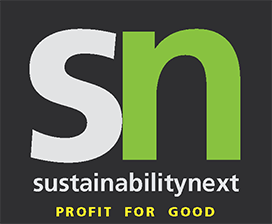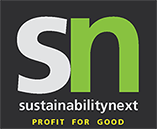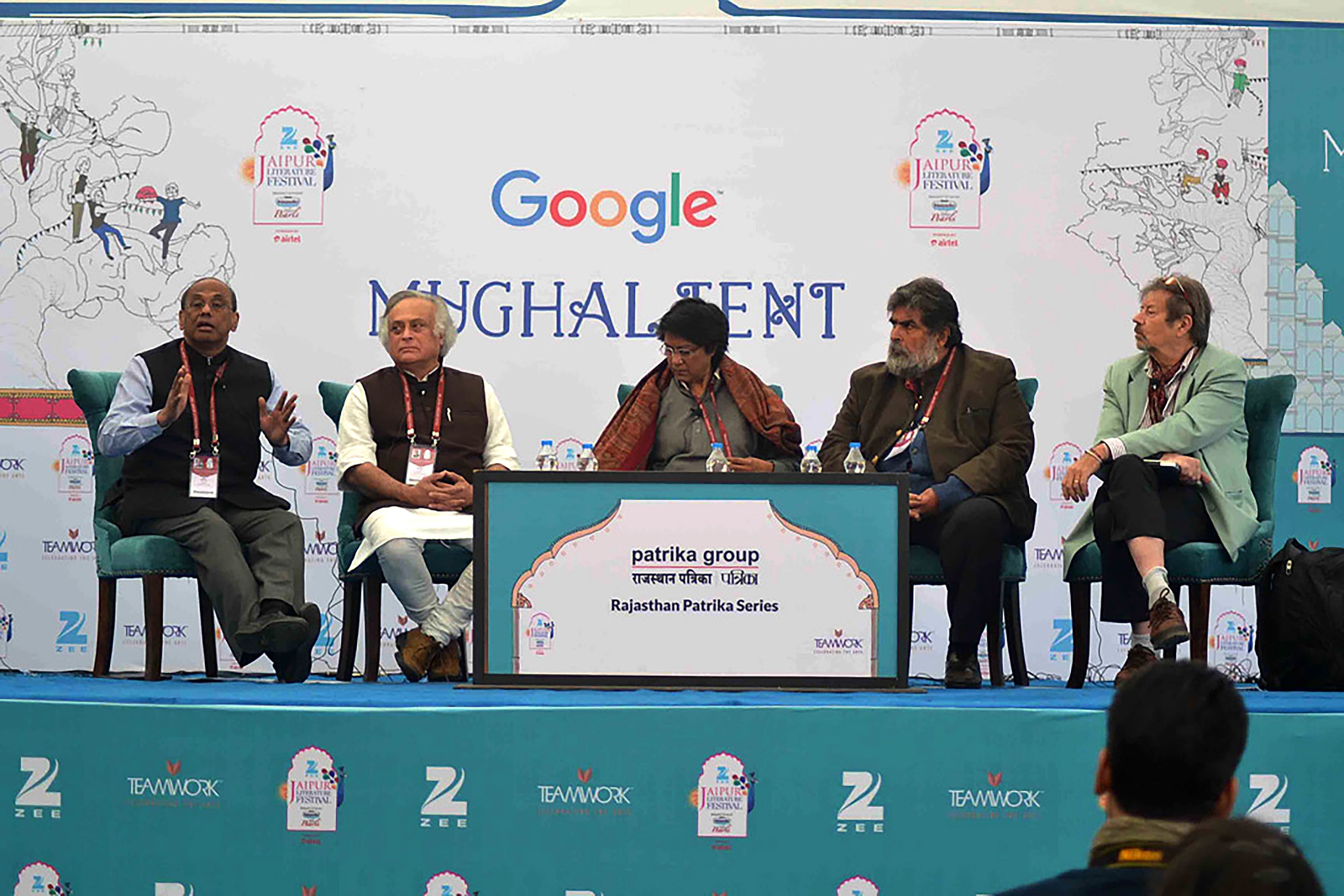India is indeed in a conundrum. Should it adopt the China model of fast growth without worrying about its impact on the ecosystem or care so much for the ecosystem that fewer people are able to come out of poverty. Political leaders too are in a quandary. They’ve been voted on the growth plank and have to satisfy their constituency if they are to get back to power but they don’t want to be seen as rampant destroyers of the ecosystem either. Is a balance between growth and ecology protection possible? India is a land which taught the world of the concept of the ‘Golden Mean’. Can it now demonstrate it? Does it have an option not to do so?
These were some questions that a panel of eminent people addressed at a session on ‘Red Signals Green Hopes.’ The panel members were former environment minister Jairam Ramesh, infl uential writer on ecology Alex Shoumatoff, TERI head Ajay Mathur, wildlife activist Valmik Thapar and moderated by Gene Campaigner Padma Shree Suman Sahai.
There is a huge gap between our enthusiasm to pass environment friendly legislation and our enthusiasm to enforce them. Reason for that is – in the short run – there is perceived confl ict of jobs, getting investment and pushing GDP growth versus protecting environment.
There is no confl ict actually. However, there is mindset in all governments that there is indeed a conflict between the two issues. Governments, irrespective political ideologies, pay obeisance to ecology but end up going for pushing GDP growth.
There is huge temptation for grow now pay later model. Everyone did it, including Europe and US.
Why we need to be different and there is a need for widespread recognition of why we need to be different:
a. Demographic – there is no country in the world which has a growing population as India. So sustainable evelopment is not a luxury but a necessity.
b. We may have not contributed to the climate crisis today but still we have had huge impact on our monsoon,glaciers etc. We are vulnerable.
c. There is an enormous public health impact – air and water pollution are silent killers.
d. There is an argument of livelihoods – in the West environment protection is about lifestyles, but in India it is
largely about livelihoods
The dominant discourse in India is that we cannot afford the ‘grow now pay later model. We need to grow by 8 percent and at the same time protect the environment. It is possible. India must make up its mind.
One of the ways this can be achieved if systems of public participation applies pressure on governance system.
India has a very vibrant society. Every great milestone on environment has been infl uenced by civil society
organizations. But some civil society organizations seem to think they have the right to tell the governments what to do. Civil society must have their say, but democratic governments should have their way.
But unfortunately, the space for civil society seems to be shrinking, which is a concern.India has a strange problem. Even if we meet all our targets of renewable energy, our coal consumption will have to go up 2.5 times in the next decade.
There’s a Need for Green Offi cer in Every District
Valmik Thapar is a naturalist, conservationist and writer. He is the author of 14 books and several articles.
Our biggest problem is bureaucracy. We need a mechanism of governance to bring about change in every district in India. The level of ignorance among the bureaucrats is huge. The 5 to 8 million government servants need to be educated about climate change. The vicious stranglehold of bureaucracy, which is holding up
change, has to be loosened.
We have 700 districts. We can make a start by seeing how budgets are administered.We need a green offi cer in each district to monitor all environment related issues and
report regularly.
India should Lead the World With New Business Models
Ajay Mathur, new Director of The Energy and Resources Institute (TERI)
Ordinary citizens can make a big impact. For example, if every citizen buys the LED bulb on the EMI scheme of
Rs 10 a month as part of their electricity bill, we can save a lot of power. What we save is higher than what we
pay for power in a year.
Some state governments like Delhi have started this scheme. Citizens can demand it from their electricity
providers. It is possible to make the difference if people start adopting new models.
I would like India to be the leader in fi nding solutions to growth vs. ecology debate. It
is a huge opportunity for creating new business models for the world.
If You Write People Take Note
Alex Shoumatoff is an American writer known for his literary journalism, nature and environmental writing, and books and magazine pieces about political and environmental situations and world affairs. He was a staff writer at The New Yorker magazine from 1978 to 1987, a founding contributing editor of Outside magazine and Condé Nast Traveler, and is currently the senior-most contributing editor to Vanity Fair where he has been since 1986. He is known for reporting on some of the most remote corners of the world.
He said if articles are written well based on research, leaders do take note. After his article on ivory trade and its impact on African elephants, Hong Kong, the hub of ivory trade, banned it.
He said India can make a big difference to East Asian environment, by buying palm oil from registered sellers and even cutting down its consumption.
His dispatches are widely read http://www.dispatchesfromthevanishingworld.com/whois/




